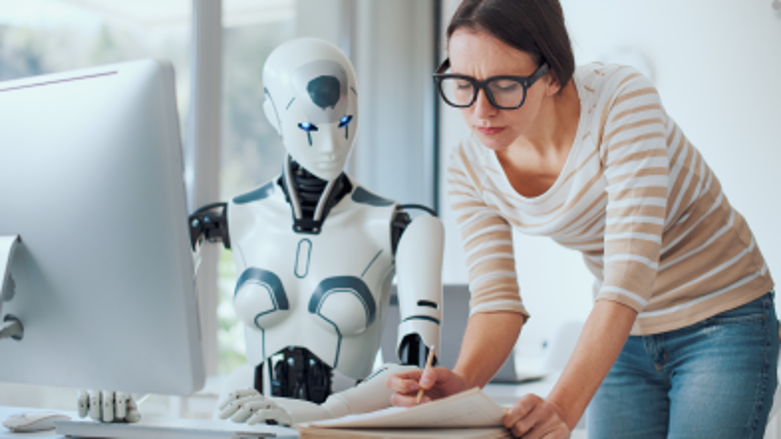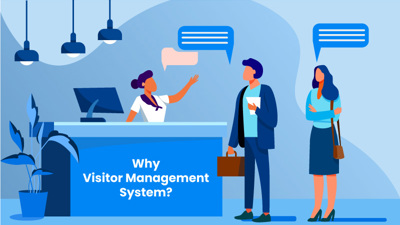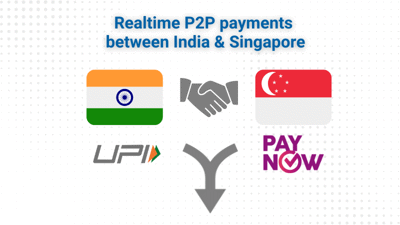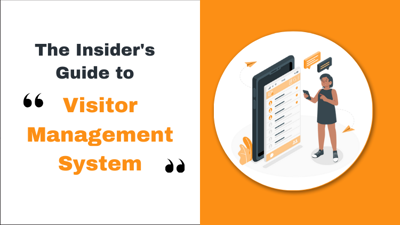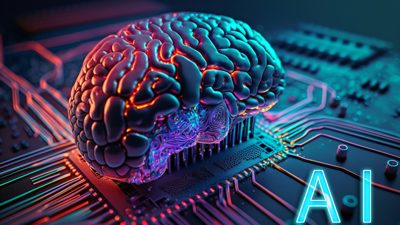AI at Work: Automating Success in the Digital Age
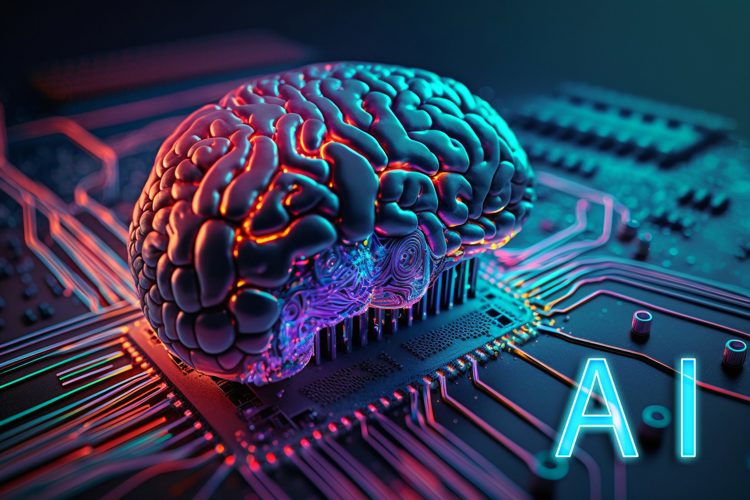
The office, as we knew it, was gone. Not in the physical sense, but in how work actually gets done. In 2025, AI has evolved from experimental technology to the invisible force powering every successful business operation. From small startups to global enterprises, companies are discovering that AI isn't just about doing things faster, but also about making them smarter, with precision that human effort alone could never achieve.
The transformation is profound. While executives once debated whether to invest in artificial intelligence, today's question is simpler: how quickly can we integrate it before competitors do? AI-powered workplace has become the new standard, and businesses that ignore this shift are finding themselves struggling to keep pace in an increasingly automated world. AI automation in daily tasks is happening now, reshaping industries, redefining jobs, and creating opportunities that didn't exist five years ago.
What AI at Work Means Today
What is AI at work in practical terms? It's the intelligent layer sitting between human decision-making and routine execution. It's the system that reads thousands of customer emails and routes them perfectly. It's the algorithm predicting inventory needs before you run short. It's the assistant that schedules meetings, the analyzer that spots financial anomalies, and the coach that helps employees improve performance.
Workplace AI has evolved beyond simple automation. Today's everyday AI tools for work include intelligent chatbots that handle customer inquiries with natural conversation, smart schedulers that understand context and priorities, virtual accountants that categorize expenses and flag irregularities, and analytics platforms that don't just report data, but also interpret it and suggest actions.
Why It Matters for Every Business
The importance of AI for companies transcends industry boundaries and business sizes. This technology has become a great equalizer, giving small businesses capabilities once reserved for corporations with massive IT budgets.
The business benefits of AI automation extend across every operational dimension:
- Cost Reduction Through Intelligence: AI efficiency eliminates redundant work, minimizes errors that require costly corrections, and optimizes resource allocation.
- Competitive Positioning: AI emerges from speed and precision. When your competitor takes three days to analyze market trends and you do it in three hours, you move faster, pivot smarter, and capture opportunities they miss.
- Error Elimination: Human error costs businesses trillions annually. Reducing business errors with AI is now an operational reality.
- Growth Acceleration: AI for business growth works through compounding advantages. Better customer insights lead to improved products. Faster response times increase satisfaction. Predictive analytics prevent stockouts and overstock. Each improvement feeds the next, creating momentum that manual processes can't match.
The ROI of AI automation becomes clear quickly. Most businesses see positive returns within 6-12 months, with benefits accelerating as systems learn and optimize. Initial investments in platforms and training pay dividends as automation scales effortlessly while human teams would require proportional hiring.
Practical Examples Across Industries
Theory matters less than results. Here's how AI use cases by industry translate into tangible business transformation:
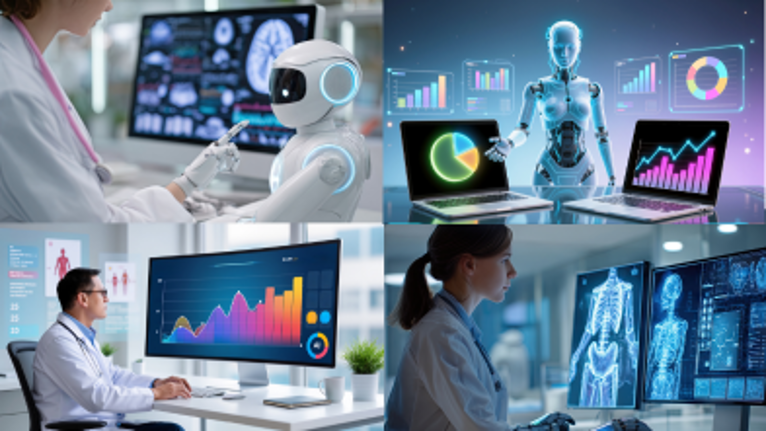
Finance
AI in finance showcases automation at its most impactful. Banks use fraud detection algorithms that analyze millions of transactions in real-time, catching suspicious patterns that would slip past human reviewers. Automated bookkeeping systems categorize expenses, reconcile accounts, and prepare financial reports without manual data entry.
Predictive budgeting tools analyze historical spending, market conditions, and business cycles to forecast cash flow with remarkable accuracy. Investment firms deploy AI to identify market opportunities, assess risk, and execute trades at optimal moments. The result is financial operations that are faster, more accurate, and significantly less expensive.
Healthcare
AI in healthcare demonstrates technology at its most human. Diagnostic systems analyze medical images, identifying early signs of disease that radiologists might miss. Patient data analytics predict health risks, enabling preventive interventions before conditions worsen.
Virtual health assistants triage symptoms, schedule appointments, and provide guidance for routine medical questions. This frees healthcare professionals to focus on complex cases requiring human judgment and empathy. Administrative automation handles insurance verification, appointment reminders, and billing, reducing overhead that often exceeds actual care costs.
Retail
AI in retail transforms shopping from transactional to experiential. Recommendation engines analyze browsing patterns, purchase history, and similar customer behaviors to suggest products with uncanny accuracy. Smart inventory systems predict demand fluctuations, preventing both stockouts and overstock situations that erode margins.
Demand forecasting algorithms consider seasonality, trends, weather, local events, and dozens of other variables to optimize stock levels. Dynamic pricing adjusts in real-time based on demand, competition, and inventory levels.
Manufacturing
AI in manufacturing revolutionizes production reliability. Sensors monitor equipment continuously, detecting subtle changes in vibration, temperature, or performance that signal impending failures. Maintenance happens before breakdowns, eliminating costly unplanned downtime.
Quality control systems inspect products faster and more consistently than human inspectors. Robotic automation handles dangerous or repetitive tasks, improving safety while increasing throughput. Production planning algorithms optimize schedules, material usage, and resource allocation to maximize efficiency.
AI in supply chain further extends these efficiencies beyond the factory floor, optimizing logistics, inventory movement, and delivery timelines to ensure end-to-end operational excellence.
Human Resources
AI in HR elevates people's operations from administrative to strategic. Resume screening systems analyze thousands of applications, identifying candidates whose skills and experience match job requirements. This accelerates hiring while reducing unconscious bias.
Workforce analytics predict turnover risk, identify training needs, and suggest optimal team compositions. Performance tracking systems provide continuous feedback rather than annual reviews, helping employees develop faster. Onboarding automation ensures consistent, comprehensive training for new hires.
These real-world AI business examples share common threads: they eliminate repetitive work, improve accuracy, enable scale without proportional cost increases, and free humans for work requiring creativity, empathy, and strategic thinking.
Future Trends Shaping Workplaces
The future of AI is arriving faster than most anticipated. AI trends in 2025 reveal technologies are moving from experimental to operational, reshaping how businesses function at fundamental levels.
Rather than automating individual tasks, organizations automate entire workflows across departments and platforms. This creates autonomous workflows in future where processes initiate, execute, and optimize themselves based on triggers and outcomes.
The workplace of tomorrow combines human creativity with machine intelligence, creating value impossible through either alone. Organizations that prepare employees for this collaboration while implementing sophisticated AI systems position themselves to lead their industries.
The Time to Act Is Now
Success requires vision and action. An AI adoption roadmap begins with an honest assessment of current capabilities and clear identification of opportunities. Start with AI automation in areas where manual processes create bottlenecks, errors, or excessive cost. Prove value quickly, learn operational requirements, then scale based on results.
Transform your business with intelligent automation solutions by Naapbooks and explore how AI can redefine your success in the digital era. The future belongs to companies that act today.
